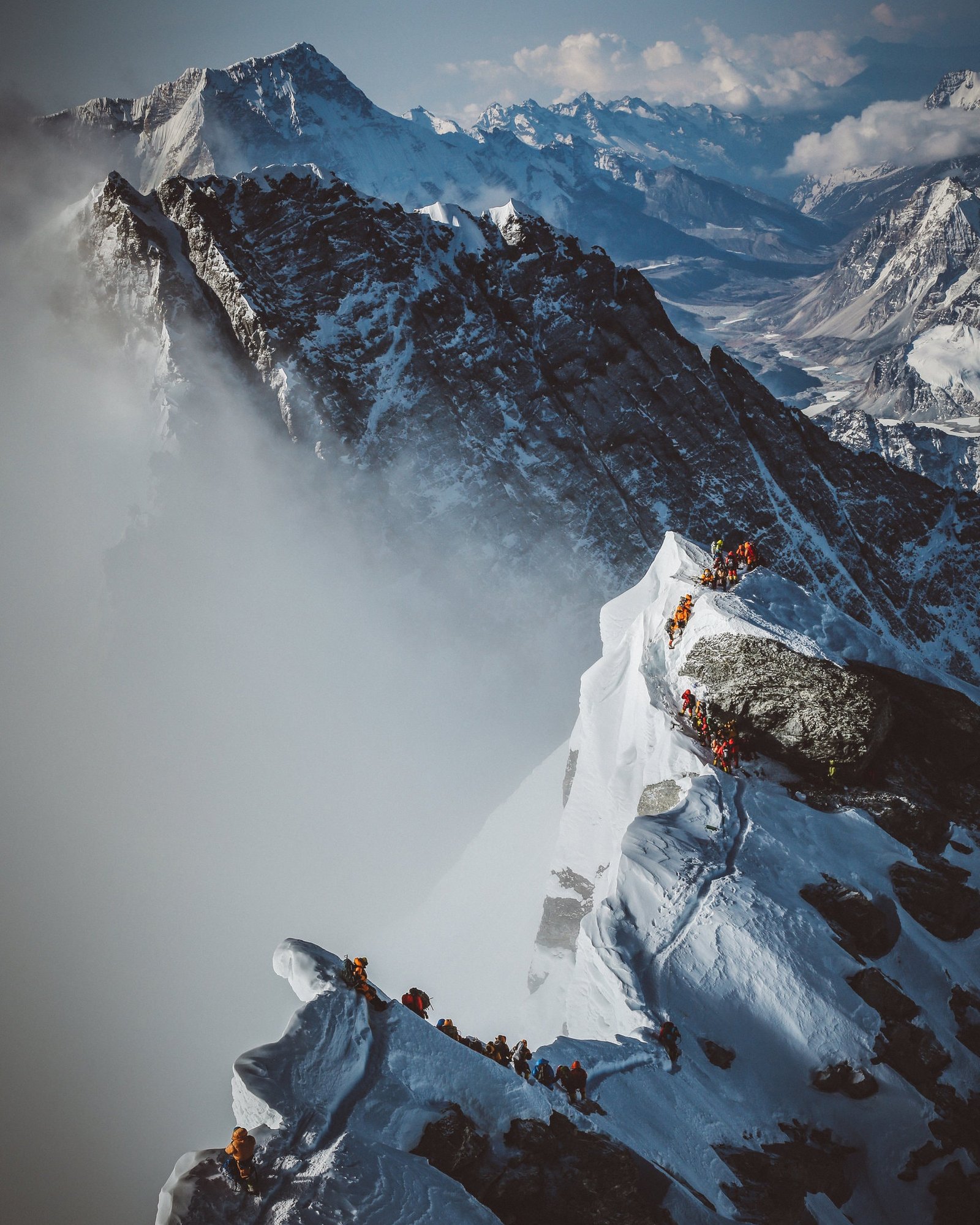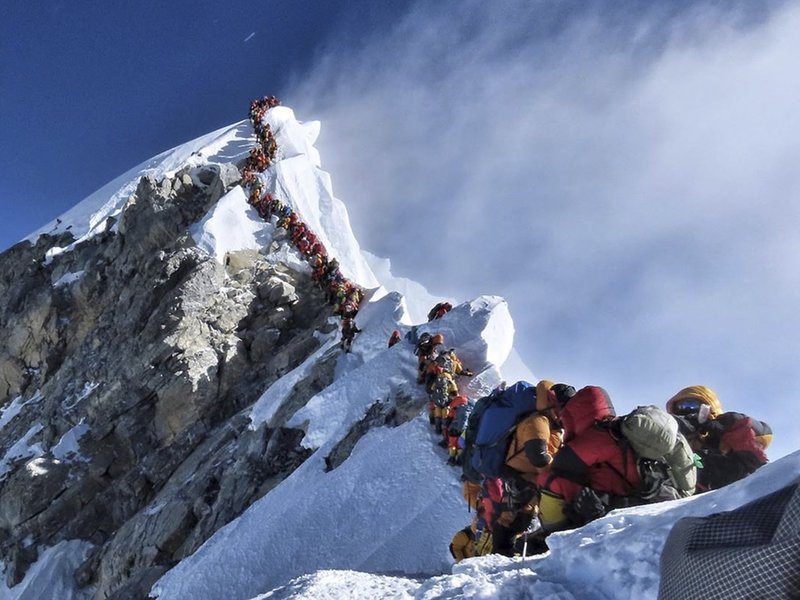
Permit will depend on climbers having ascended at least one 6,500-metre Nepalese peak
Also see: https://news.yahoo.com/nepal-may-implement-safety-measures-172348951.html
All climbers seeking a permit for Everest must have prior high altitude mountaineering experience and demonstrable training, a high-level commission for the Nepalese government has ruled.
The recommendation was issued by the body charged with looking at the issue of high-altitude safety after one of the deadliest seasons in recent years on Everest, which was blamed on inexperience and crowding near the summit.
Eleven climbers were killed or went missing on the 8,850-metre (29,035 ft) mountain in May, nine on the Nepalese side and two on the Tibetan side.
The Nepalese panel – made up of government officials, climbing experts and agencies representing the climbing community – was set up after climbers and guides criticised officials for allowing anyone who paid $11,000 (£9,000) to attempt to climb Everest. Some veteran guiding companies had long warned of the dangerous consequences of inexperience and crowds on the summit slopes.
It said that those hoping to climb Everest must have climbed at least one Nepalese peak of more than 6,500-metres21,325 ft) before getting a permit. Climbers must also submit a certificate of good health and physical fitness and be accompanied by a trained Nepalese guide.
Mira Acharya, a member of the panel, said: “Climbers died due to altitude sickness, heart attack, exhaustion or weaknesses, and not due to traffic jams”. She said the compulsory provision of guides for each climber was to discourage solo attempts, which put lives at risk.
Nepal is home to eight of the world’s 14 highest mountains, and mountain climbing is a key source of employment and income for the poor nation.
The numbers attempting the climb in May led to bottlenecks in the “death zone”, where very low oxygen levels put lives at risk. Oxygen cylinders ran out while as many as 100 people waited in the queue.
The issues were underlined by Simon Lowe, the managing director of UK-based Jagged Globe, who said this year’s crowding had aggravated an underlying issue of lack of experience.
“That is incompetent climbers being led by incompetent teams,” Lowe said. “If you go up with a bare minimum bottles of supplementary oxygen and stand in a queue for ages that is going to cause problems.”
Without reforms such as those suggested by the panel, Lowe said guiding on the mountain by responsible companies could become untenable.
Nepal issued 381 permits for Everest for this year’s climbing season, which tends to culminate in May, when the daylight and weather are the most forgiving.
Ghanshyam Upadhyaya, a senior tourism ministry official, said the recommendations would be implemented. “The government will now make the required changes in laws and regulations guiding mountain climbing,” he told Reuters.

The High Asia Herald is a member of High Asia Media Group — a window to High Asia and Central Asia

